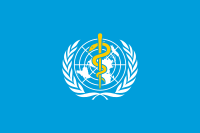
Photo from wikipedia
Do you remember Dr Francis W. Peabody (1881–1927)? You should. His essay The care of the patient published 19 March 1927 closed with the now famous remark ‘One of the… Click to show full abstract
Do you remember Dr Francis W. Peabody (1881–1927)? You should. His essay The care of the patient published 19 March 1927 closed with the now famous remark ‘One of the essential qualities of the physician is interest in humanity, for the secret of the care for the patient is in caring for the patient’. The sentence is a charming case of keep it simple stupid; patient care is a humanitarian mission and has no other secrets. Rapid changes in medicine with the increasing impact of legal regulations suggest the need to revisit ethics as personalized and applied in medical practice. The Cambridge Dictionary defines humanity usefully as ‘understanding and kindness towards other people’. In aesthetic literature ‘understanding and kindness towards other people’ translates into a truthful representation of others. Harold Bloom (1930–2019), former professor of English literature and humanities at Yale tirelessly pointed out Shakespeare’s unique ability to represent others. Only the implicit absence of author’s interference with his literary subject made Hamlet’s infinite personality, even surpassing that of his author, possible. Such ‘otherness’, professor Bloom taught us, represents the highest achievement of the whole of the Western humanitarian literary tradition. In philosophy, ‘understanding and kindness towards other people’ may mean many things. For example, according to the French philosopher Emmanuel Levinas (1906–95), others shadow their hosts turning them virtually into hostages; not a worldly proposition. In medicine, since the age of Hippocrates, ‘understanding and kindness towards other people’ has represented the core of medical ethics. Currently, the four principles of Drs. Beauchamp and Childress provide a useful framework (Table 1). A pragmatic and highly readable Code of Ethics is available from the American Medical Association. While the ESC Code of Ethics addresses the issues concerning the ethical conduct of the ESC volunteers and employees, the American College of Cardiology Code of Ethics strives to set standards and provide guidance for members of the College. While the Codes are important, their impact depends on their transfer into the clinical practice. Over time medical practice has dramatically changed; the pace is increasing. Some of the more recent external game changers are well known and include the exponential growth of medical knowledge, rapid technology progress, dynamics of managed medical care systems, increasing commercialization of medical services and medical entrepreneurships, impact of the vested interests of numerous stake holders, paranoia of compulsory documentation, growing importance of digital communication, often excessive administrative supervision of quality of care, and proliferation of IT services. Perhaps less obvious but equally important are changes in health care policies where patients’ rights have become part and parcel of the political will and increasingly so of the legal concerns and regulations. Besides, the external factors providers are—tempora mutantur, nos et mutamur in illis –changing as well. The rising importance of technical sophistication over traditional humanistic education, a proliferation of work-life balance considerations and dominance of solipsism over altruism, just to name of few, are also reshaping the providers’ landscape. Figure 1 shows the patient’s and doctor’s perspectives of ethics. The impact of these factors on ethics in medical practice as a whole can only be guessed. Indeed, it might have taken the Covid-19 pandemic to bring the critical importance of ethics in medical practice to the fore. These lessons should not get lost. The changes in health care related to the global new developments in public domains provide compelling reminders that the practice of medicine has entered uncharted territory. To understand and possibly to shape these emergent forces redefining the provision of health care, doctors’ ethical and legal expertise in servicing the multitude of stakeholders will be required. Table 1 Four principles of Beauchamp and Childress (modified from Ref. 7)
Journal Title: European heart journal
Year Published: 2021
Link to full text (if available)
Share on Social Media: Sign Up to like & get
recommendations!